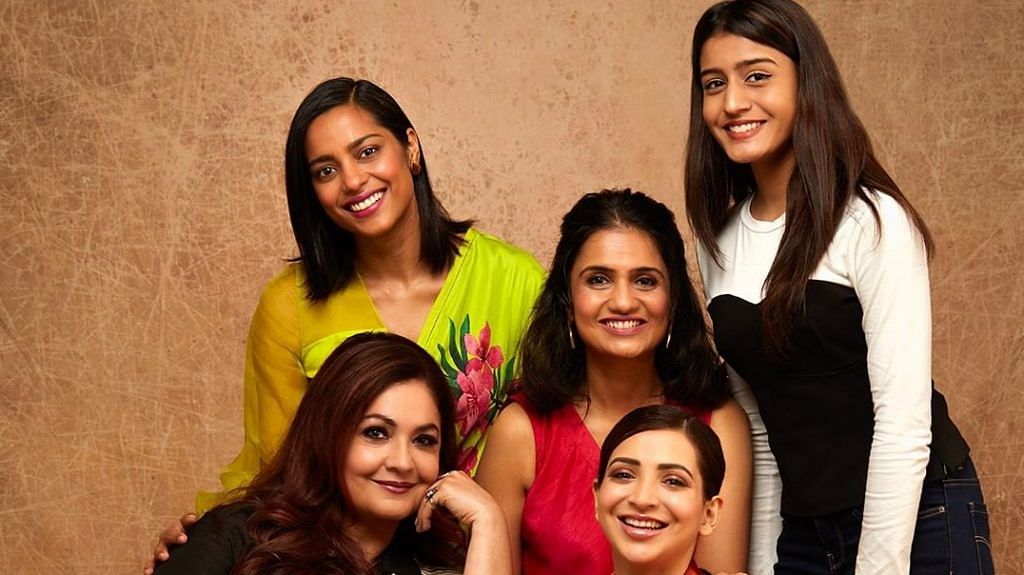Netflix’s latest Indian offering, Bombay Begums, starring Pooja Bhatt and Shahana Goswami, brings back the unfinished debate around the language we use to describe a sexually active woman. It reminded women, once again, why calling someone a ‘whore’ shouldn’t be an insult. For that matter, words like ‘whore’, ‘slut’, and ‘bitch’ must be retrieved, with pride.
In one scene, Ayesha, played by Plabita Borthakur, becomes furious after she feels as if she was spoken to like a ‘dhandewali’ (one who is into sex trade) when she goes house-hunting. And another character, Shai, played by Aadhya Anand, retorts, “There’s nothing wrong in being a prostitute if it’s your choice. I mean, you own your body, after all.”
What is wrong in being a sex worker if one is doing it by choice, or compulsion? It’s a job. Selling your body for money is no different from selling hair, blood, or even renting out a womb. It’s time we stop attaching notions of value and honour to women’s sexual organs and behaviour. This language has been used for centuries to undermine women’s sexual autonomy and destroy their self-confidence.
Also read: Medusa to Rekha to Rhea — Women are always villains, because raja betas do no wrong
She is a slut, he is a stud
The Cambridge dictionary defines ‘slut’ as a woman who has “many sexual partners without any emotional involvement”. Alternatively, the term is also used to refer to a woman who is untidy or lazy. Both meanings, however, apply only to women, and not men.
There’s no male equivalent for the term slut. So, while sexual women are sluts, men are studs. This is why actor Ranbir Kapoor is a ‘ladies man’, while his girlfriend Alia Bhatt is slut-shamed for ditching her previous boyfriend.
‘Slut’ is laced with patriarchy — the word is not just used for women who are vocal about their sexuality and choices, but also for women who don’t toe the conventional line. You don’t have to be in the sex trade to be called a slut. A woman expressing her free will or speaking up for her rights, against injustice, or even against the establishment can earn you the tag of a slut. It’s the go-to insult for women.
Remember how actor Swara Bhaskar was repeatedly slut-shamed for her masturbation scene in the Bollywood movie Veere Di Wedding (2018), or how former JNU student leader Shehla Rashid was called a prostitute for speaking out against a sex racket allegedly run by BJP leaders?
Also read: Where’s your hijab — the question I face the most as a Muslim woman online
Origins of ‘slut’
In the 1400s, the Oxford English Dictionary coined the meaning of the word as “a dirty, slovenly, or untidy woman”.
From the mid-15th century, “loose character and bold hussy” was added to the meaning of ‘slut’.
A more modern definition — a woman “who enjoys sex in a degree considered shamefully excessive” — was cited by 1966.
Despite all the gender awareness and movements such as slut-walks, the word still has so much power to shame and provoke women. It still remains too loaded a word to reappropriate.
“Words like tarty or strumpet appear very old-fashioned but slut seems to still have a powerful connotation,” TV lexicographer Susie Dent was quoted as saying in a 2011 BBC report. “This could partly be because it is short and pithy and you can say it with power. Also, it has never deviated from its original roots,” she said.
Also read: Short hair to sweatshirt and Velcro sandals – why I won’t perform femininity for people
How to own it
The first step to normalising words like whore or slut is to say it again and again to take the sting out of it. Words like ‘bitch’ and ‘queer’ were normalised only through repetition. Women now use ‘bitch’ for each other as a term of endearment, not an insult.
Similarly, the gay community has embraced ‘queer’, previously a slur, and now use it with pride.
The negative connotation attached to ‘slut’ has been assigned by patriarchy and perceiving it as a ‘gaali’, or abuse, will mean giving in to that patriarchal narrative. Why should we, women, look at ourselves the way patriarchy does?
Women have the power to embrace what is meant to hurt them.
To strip ‘slut’ of its toxicity, women need to start calling each other by that name happily, and be unfettered when men hurl the word at us with vitriol because we don’t need to be apologetic about our sexuality. Once women refuse to view themselves from a patriarchal gaze, words like slut, whore, prostitute will stop being offensive.
Views are personal.
